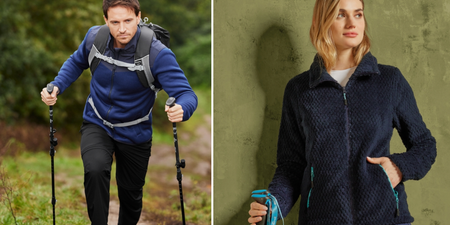Eh, what?
It’s almost an automatic response to hop off your seat on a packed bus in order to let someone who is older than you take your seat to rest their bones.
However, a professor from Oxford University is telling people to stop ‘respecting their elders’ and instead to ignore giving them any seat in the future.
Mean? Most definitely but do they have a method to their madness? They sure do.
Oxford professor Sir Muir Gray, a Public Health England clinical adviser has said that “we need to be encouraging activity as we age — not telling people to put their feet up. Think twice before giving up your seat on the bus or train to an older person. Standing up is great exercise for them.”
A concerted effort to provide support and opportunities for physical activity can help older adults maintain independence and lessen the costly burden of social care, it has been found.
Gray, is one of the lead authors in a study regarding elderly and exercise and writing in the British Medical Journal (BMJ), experts from Oxford University and the UK’s Centre for Ageing Better said exercise could keep a person from needing care by reversing physical decline by up to a decade.
Gray stated that “ensuring that as many people as possible maintain the ability to manage vital activities of daily living requires a cultural change so that it becomes normal to expect people of all ages to be active.
“The prevailing attitude that exercise is for young people while older people should be encouraged to relax needs to be challenged.
“Encouraging recent research suggests that the key to reducing the incidence of dementia is unlikely to be any new drug but through encouraging activities that are important in keeping healthy and feeling well in the short term.”
This study adds to findings made in a book called “How to Live to 100” which outlines exercises that people of different age groups should be doing in order to help themselves live as long as possible.
For example, a person in their 60s is encouraged to do weightlifting, Zumba and water aerobics because “having great upper body strength will bode well when you take a tumble.”
A person in their 70s is also told to remain active, even if it’s from a chair in their home and they are advised to do arm raises with resistance bands, leg lifts, aerobics and stretching.
LISTEN: You Must Be Jokin’ with Aideen McQueen – Faith healers, Coolock craic and Gigging as Gaeilge





















































